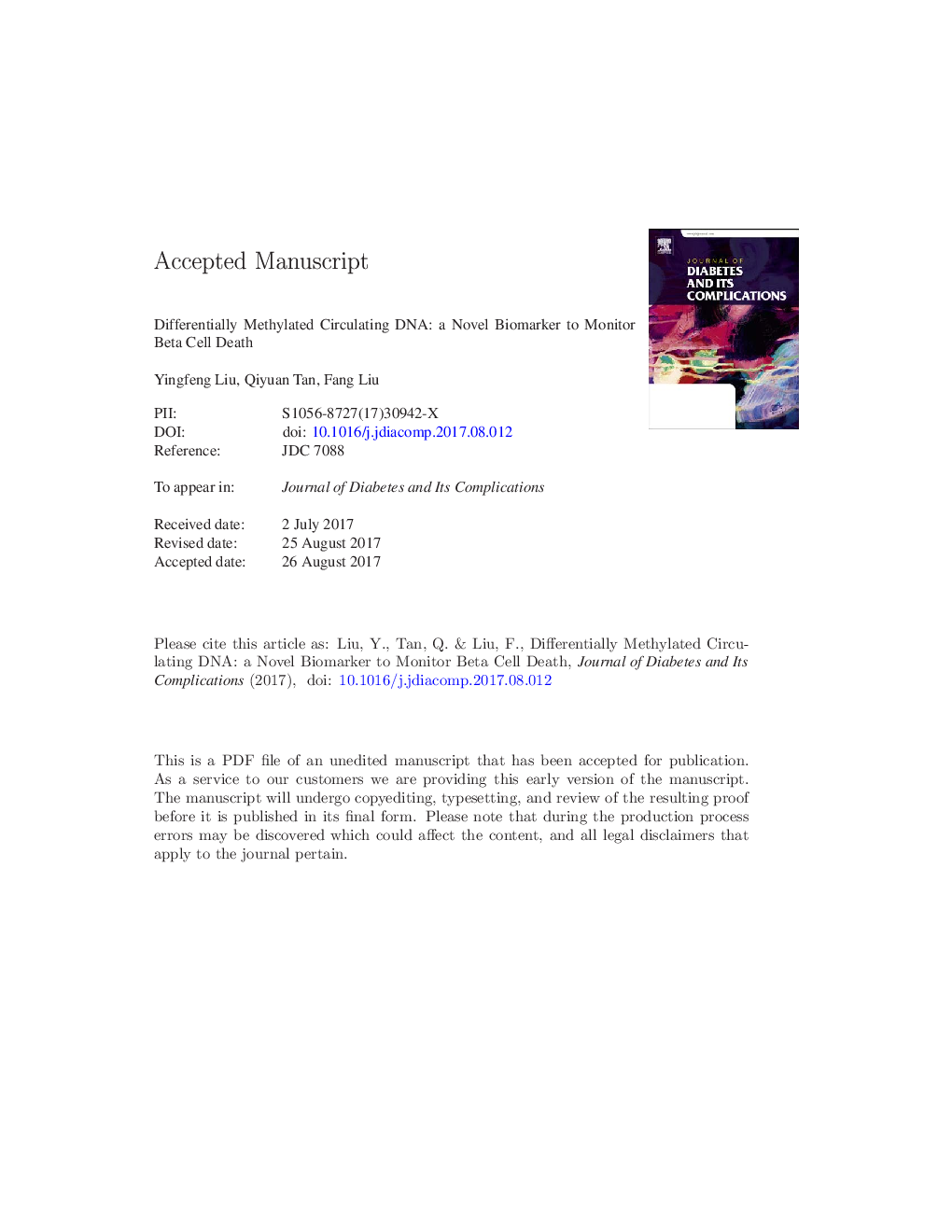| Article ID | Journal | Published Year | Pages | File Type |
|---|---|---|---|---|
| 8632261 | Journal of Diabetes and its Complications | 2018 | 30 Pages |
Abstract
Diabetes mellitus (DM) is a metabolic disorder of glucose homeostasis caused by insufficient secretion or inadequate action of insulin. Nowadays, the increased morbidity of DM is a worldwide issue. Pancreatic beta cell death plays a key role in the progress of DM, especially Type 1 diabetes (T1D). Traditional biomarkers, such as C-peptide and islet autoimmune antibodies are limited to reflect beta cell death and to identify high risk patients in the clinical practice. Recently, a novel biomarker, differentially methylated circulating DNA, has become a research hotspot. It has better sensitivity and specificity in the detection of beta cell death. Assays of beta cell-derived differentially methylated insulin DNA in serum are helpful to predict the possibility to develop T1D in the high risk population. They have also been applied to evaluate beta cell death in Type 2 diabetes (T2D), gestational diabetes mellitus (GDM), islet transplantation and islet specific immune therapy. Although more studies are needed to identify the best methylation target sites in the INS gene, differentially methylated circulating DNA may be a good method to evaluate the progression and prognosis of islet related diseases in the future.
Related Topics
Life Sciences
Biochemistry, Genetics and Molecular Biology
Endocrinology
Authors
Yingfeng Liu, Qiyuan Tan, Fang Liu,
